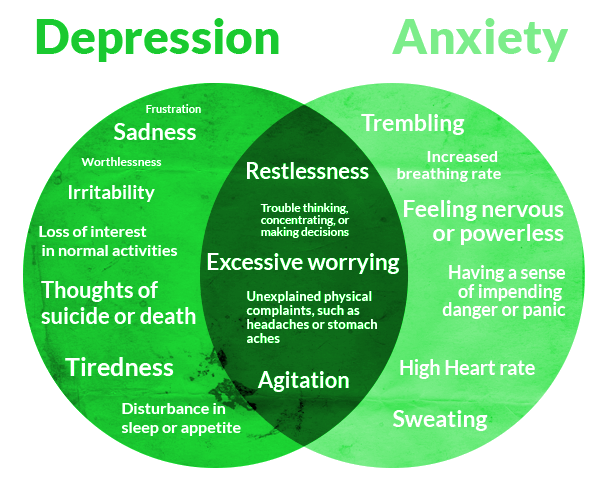Fear and anxiety disorders can be caused by previous trauma or by role models who may suffered from the same disorder and subsequently influenced the person. In other cases, inherited genes, drugs or other disorders cause it. Abnormal responses show up in various scenarios, for example:
- Weak social networks: Failed relationships, bullying, backstabbing or humiliation cause victims to shun people, for fear of being hurt again. Mere conversations with others can cause anxiety.
- Dysfunctional families: Because children from dysfunctional homes do not have proper parental role models, they never learn to manage a normal family. Lack of skill fuels anxiety.
- Missed opportunities: Victims avoid or decline offers that would have enriched them, because it includes elements that they dread.
- Indecision: Victims expect the worst, are overly cautious and have a hard time deciding on the best course of action. They err in favour of caution.
- Poor anger management: Involuntary aggression is triggered by events that other people would have handled with more restraint. It can reap injury and material damage. It can even land you in trouble with the law.
- Invasive thoughts: Mild worries capture a victim’s mind. They are unable to shake it off. They start catastrophising. It handicaps them in a myriad ways, including reduced productivity and poor performance in all spheres of life.
- Phobias: Excessive fear of specific things, like elevators, flying, public speaking, insects, reptiles, etc., places the sufferer in situations of embarrassment or extreme discomfort. The origins are not always traceable, but the condition is treatable.
- Vulnerability: Physically weak, sick, dependent or old people are especially sensitive to perceived threats and may overreact to protect themselves.
- Abusive escapism: Sufferers often try to smother these feelings with alcohol or drugs. They accept this destructive process as their natural fate.
Links Between Depression and Anxiety
There are many distinct overlaps between depression and anxiety in terms of patients varying emotional states and factors contributing to their disorders. These overlaps are present with levels of intensity dependant on each patient, however some of the more common causes include worrying, restlessness and overall agitation, these feelings may compound over time or dissipate as antagonising factors are removed.

Treating Anxiety Disorders
Before turning to prescription medications to deal with anxiety and panic attacks, it would be worth speaking to a professional counsellor on the topic. Please also read our previous post about fear and anxiety or visit Recovery Direct’s complete guide to dealing with anxiety disorders to form a holistic understanding of how anxiety may or may not be affecting you.







